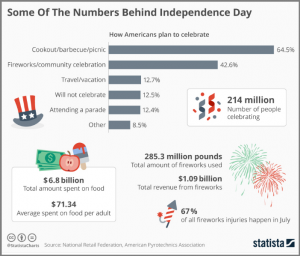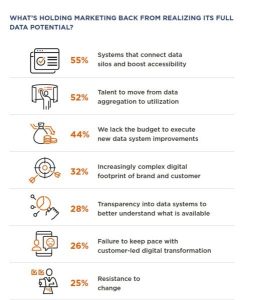Find a job you’re excited to come to every day.
Technology and the nature of modern business are rapidly expanding the traditional workplace far beyond cubicles and office buildings. Remote marketing staffing and team members that contribute their productivity and expertise away from a centralized location are already becoming commonplace. If you’re a marketing executive, could your job also be done remotely?
Maybe. But from what we’ve seen as marketing executive recruiters, you shouldn’t get your hopes up.
The Rise of the Virtual Marketer

Many companies big and small are already finding success with adoption of virtual roles. Some 25 million professionals will work mostly or entirely on a remote basis this year. Faster internet, video calls, instant messaging, document sharing and a suite of collaboration and project management tools have made it so that virtual work doesn’t result in lost productivity.
Is Your Marketing Department Prepared to Handle Virtual Workers?
The benefits of remote marketing staffing to a marketing operation are numerous:
- Today’s marketing rarely requires a physical presence, at least from many of the junior and mid-level roles. So much of the work is digital, analytical, creative, and strategic–which usually doesn’t need hands-on execution. There are some advantages to having your team physically together, but it’s not a necessity in many cases.
- Opening up key positions to the possibility of virtual work dramatically expands your potential talent pool. If the best candidate for a job is several hundred miles away, you no longer have to settle for a less-qualified marketer that happens to be nearby.
- The opportunity to work virtually adds a lot of potential value to employees. Remote workers are about twice as likely to love their job than their in-office counterparts. They get increased comfort, less time and money spent on commutes, lower stress levels, etc. For individuals and roles where remote work is a viable option, this is a low-cost way to significantly add value and job satisfaction to your marketing staff. It’s also a great reward/incentive for team members that show themselves to be diligent and reliable.
- Work flexibility is not only a huge draw for top marketing talent, it’s becoming an expectation. As marketing executive recruiters, we’re seeing more and more of marketing’s top performers expecting greater flexibility in terms of where and when they work. Many value it as much or more than salary.
- All else being equal, remote workers cost a business less than those that come in to work every day. On-site marketing staff need office space—both a personal work place and access to common areas like break rooms, conference rooms, rest rooms, etc. They also need furnishing and equipment: desks, chairs, office supplies, phone lines, etc. Not to mention any other office perks: snacks, coffee, a pizza day, birthday celebrations…you get the idea. You won’t lose productivity from a remote marketer getting caught in traffic on the way to work. As job satisfaction increases, turnover costs shrink. And professionals working from home have lower rates of absenteeism.
Why It Doesn’t Work for Marketing Leaders

You’re probably well aware that much of your marketing team, from SEO staffing to copywriters to analytics specialists could potentially work remotely and be effective.
If you’re a marketing executive that’s been coming into work almost every day for a couple of decades, it’s easy to imagine you might also find the idea of leading from the comfort of your own home or a local coffee shop appealing.
Unfortunately, this just isn’t a viable option for most marketing execs right now, at least not on a full-time basis.
It’s simply too important for marketing leaders to have a constant guiding presence with their team and teams in other departments. They need to be in the trenches; actively listening to what their team has to say and constantly feeling the pulse of the organization. They need to see and, just a importantly, be seen in the office.
A marketing executive working remotely risks being perceived as too far removed from the reality of the organization’s day-to-day work. Over time resentment of this “out-of-touch” leader builds, and productivity is lost.
This is especially important in scenarios where your business’s marketing operations are mostly or entirely combined in one place. That tends to generate close communication and collaboration among the team that’s consolidated in this spot–which is good.
But that congregation also leads to groupthink and an “us vs them” mentality. Active, hands-on management is needed to harness that power and keep everyone on the same page.
One day soon, CMOs and other marketing executives may be able to manage a department from any location as well as they would from the office. Already, technology enables them to have some part-time virtual flexibility or to go on business trips and still oversee their team effectively. But we’re just not there yet for the majority of full time arrangements.
The One Exception

There is one situation where a marketing executive could potentially work remotely without sacrificing productivity.
I mentioned earlier that the big danger for remote executives is losing control of a consolidated marketing operation that’s concentrated in one area and can develop a mind of its own.
However, there are some situations where this isn’t the case. Some businesses have their marketing teams scattered around the country or around the world, for varying reasons. Perhaps the organization is a growing startup where most employees have worked remotely from its inception, or is formed of several disparate companies that were previously acquired. Some organizations are just intentionally decentralized by design.
If any of these scenarios describe your marketing org chart, you could potentially work mostly or entirely from a remote location as an executive. Because the marketing professionals in organizations like this are less likely to develop a centralized “hive mind,” it’s less essential for their leadership to be congregated in any given place.
Business & Finance Articles on Business 2 Community(53)










